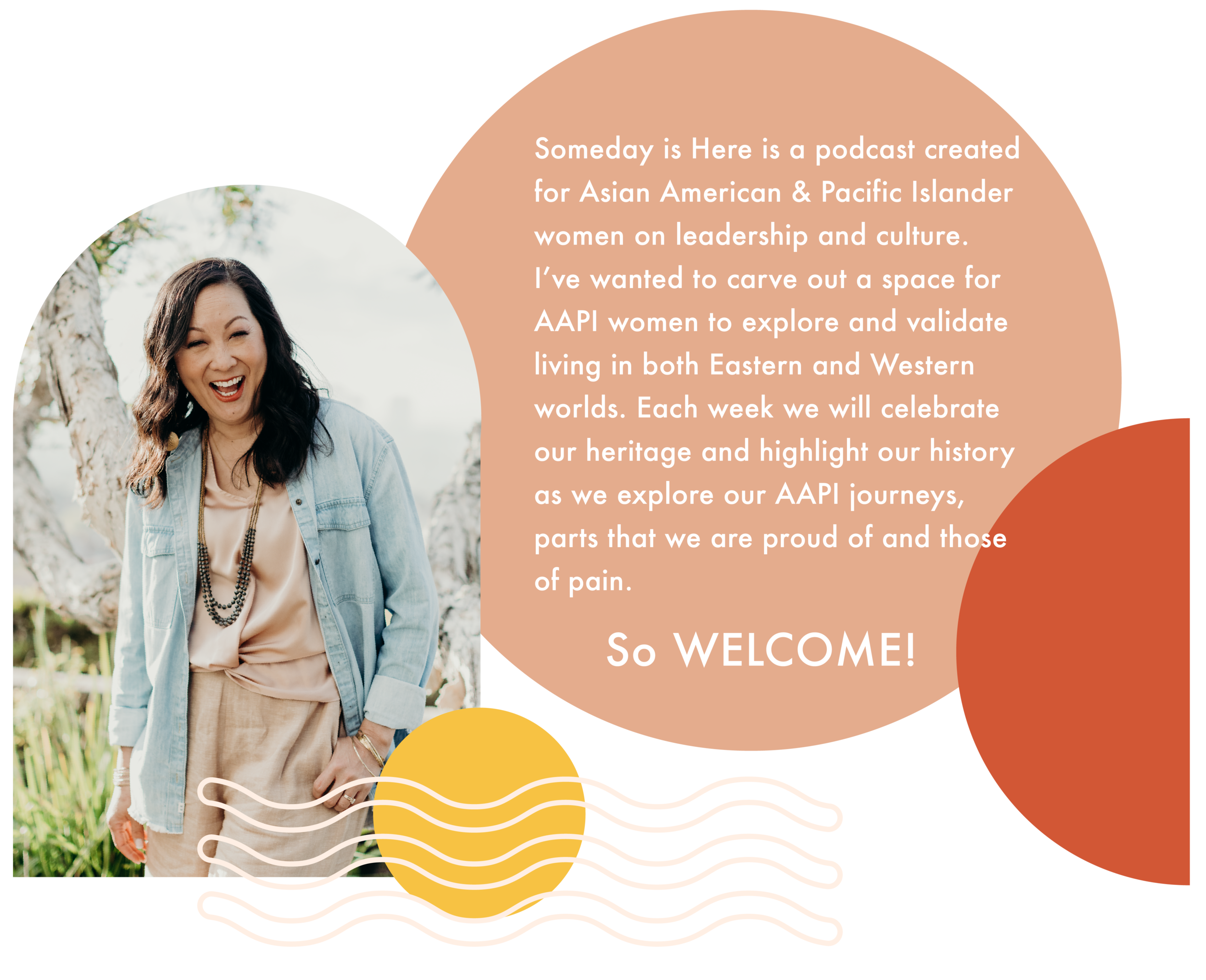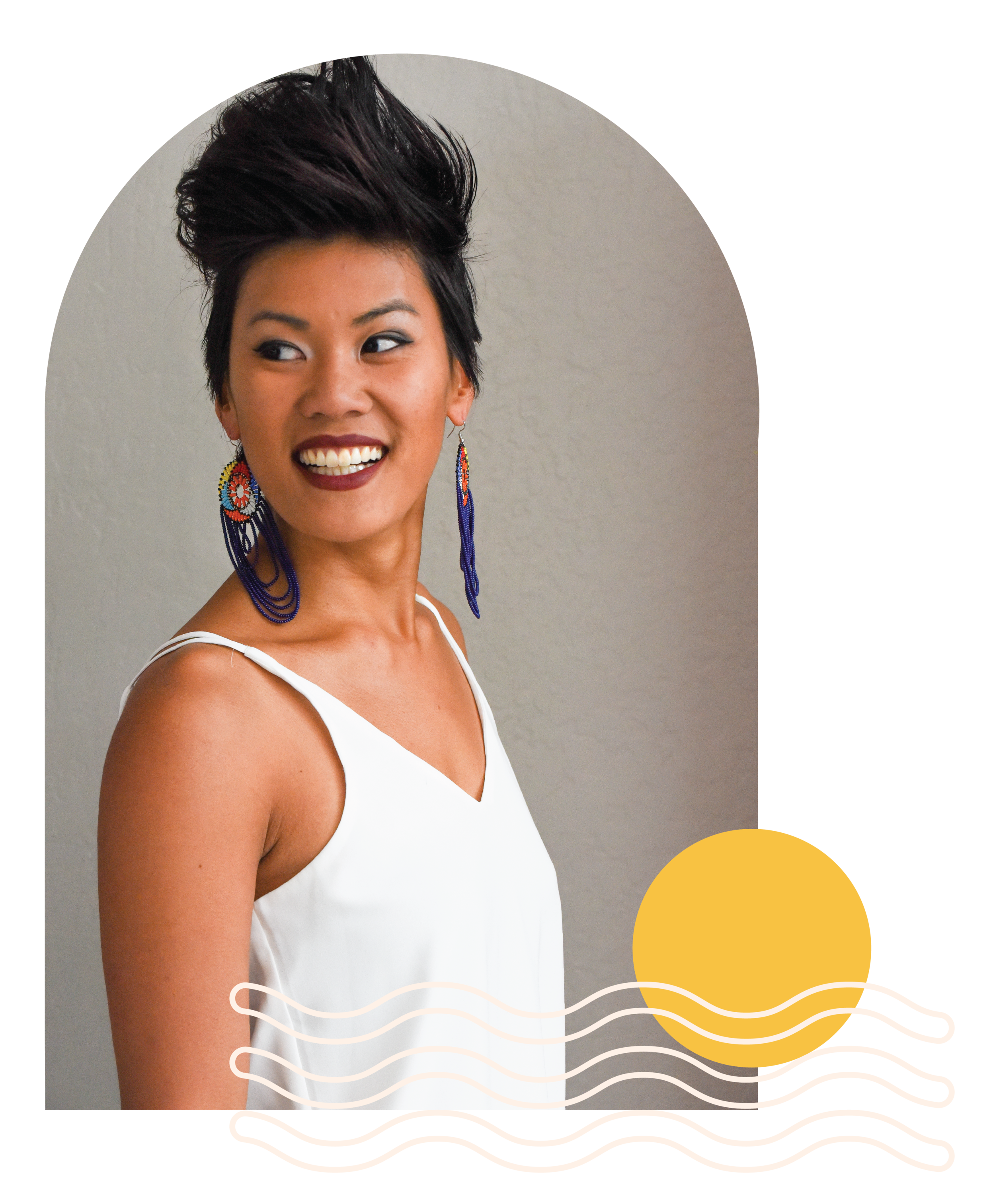Episode 34 - Nikole Lim
Episode 34 w/ Nikole Lim
What a powerful and insightful conversation with Nikole Lim this week. Nikole is not only the founder and director of Freely in Hope, a nonprofit organization working in Kenya and Zambia, she is also an author, educator, advocate, photographer, and passionate leader. We talk about the importance of language and the difference between a victim of sexual violence and a survivor. We discuss the need for Asian Americans to know and name our emotions in order to heal. And how we need to own and tell our stories in order to offer the unique perspectives we bring as AAPI women. This conversation is loaded with important information so you may want to listen with a pen in hand to take notes.
Learn More About NIKOLE
Instagram: @nikole_lim
Twitter: @nikole_lim
Facebook: https://www.facebook.com/nikolelim
Nikole Lim is a speaker, educator, and consultant on leveraging dignity through the restorative art of storytelling. She is the founder and international director of Freely In Hope, a nonprofit organization dedicated to equip survivors and advocates to lead in ending sexual violence through holistic education, leadership development, and storytelling platforms. Nikole has been deeply transformed by the powerful, tenacious, and awe-inspiring examples of survivors. Their audacious dreams have informed her philosophy for a survivor-led approach to community transformation. Nikole graduated with a degree in Film Production from Loyola Marymount University and is currently pursuing a masters in Global Leadership from Fuller Theological Seminary. She is a native of the Bay Area and can often be found buying African fabric on the streets of Nairobi. Her vision is to equip survivors and advocates to lead in ending the cycle of sexual violence—believing that they will be the ones to bring us all into liberation. In it, her hope is that the world may be transformed by them—just as she has.
Favorite Comfort Food
Xiao Long Bao
Leadership Lesson
Leadership is meant to be given away. In advocacy, if we’re leading we’re actually championing the dreams of other people. So what survivors taught me was sharing your story is the first step to healing.
DID YOU KNOW?
This episode’s Did You Know may be triggering for some as it contains information related to sexual violence. Please be advised and aware of resources that may be of help to you.
Did you know that there are memorial statues of the Comfort Women all over the world, including different parts of the United States? A couple of them are located here in California (where I’m recording this podcast), both in San Francisco and Glendale. To give some background, Comfort Women were women and children forced into sex slavery by the Japanese empire in the 1930s and through World War II. Most of these 400,000 women and children were of Korean descent and were either recruited under false advertising or violently removed and then forced to live and work in horrible, unfathomable conditions. These women lived and worked in “comfort stations,” which were sponsored by the Japanese government and were horrendous rape camps. These camps were supposed to raise the morale of Japanese soldiers as a “strategy of war” and to ironically keep them from hurting other women (CWJC). While the war eventually ended, the practice of violently using women for imperialistic gain did not. And while these comfort stations may no longer be standing, the immense pain carries on for generations. To this day there are protests and demands for redress and reparations against the Japanese government. In 2015, they agreed to pay 1 billion yen (approximately $8.3 million dollars) to support surviving comfort women, but it was unclear that the money would go directly to survivors. Activists, including survivors, demanded more––they demanded sincere apologies for the stripping of their basic human rights. They also advocated and pushed for the history of Comfort Women to be taught in schools, including U.S. schools, in hopes to keep history from repeating itself and to bring awareness to the ways in which trafficking is still rampant today. In the past few years, the Japanese government entities have continued to sever ties with various locations that have installed memorials, including Osaka’s “sister city” San Francisco. In California, organizations such as Nikkei for Civil Rights and Redress (NCRR) and the Comfort Women Justice Coalition amongst others have continued to fight for the remembrance of these stories, for the inherent dignity and strength these women had, and for the strength of these survivors, as well as those who have passed. They fight to keep memorials standing and for fair reparations to be paid for the years of pain and suffering these women endured.

















